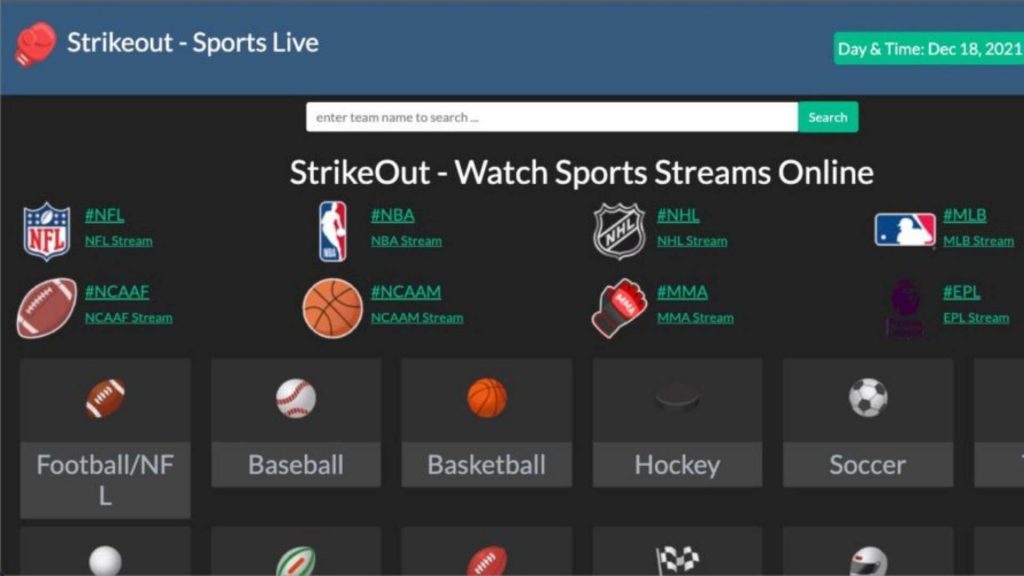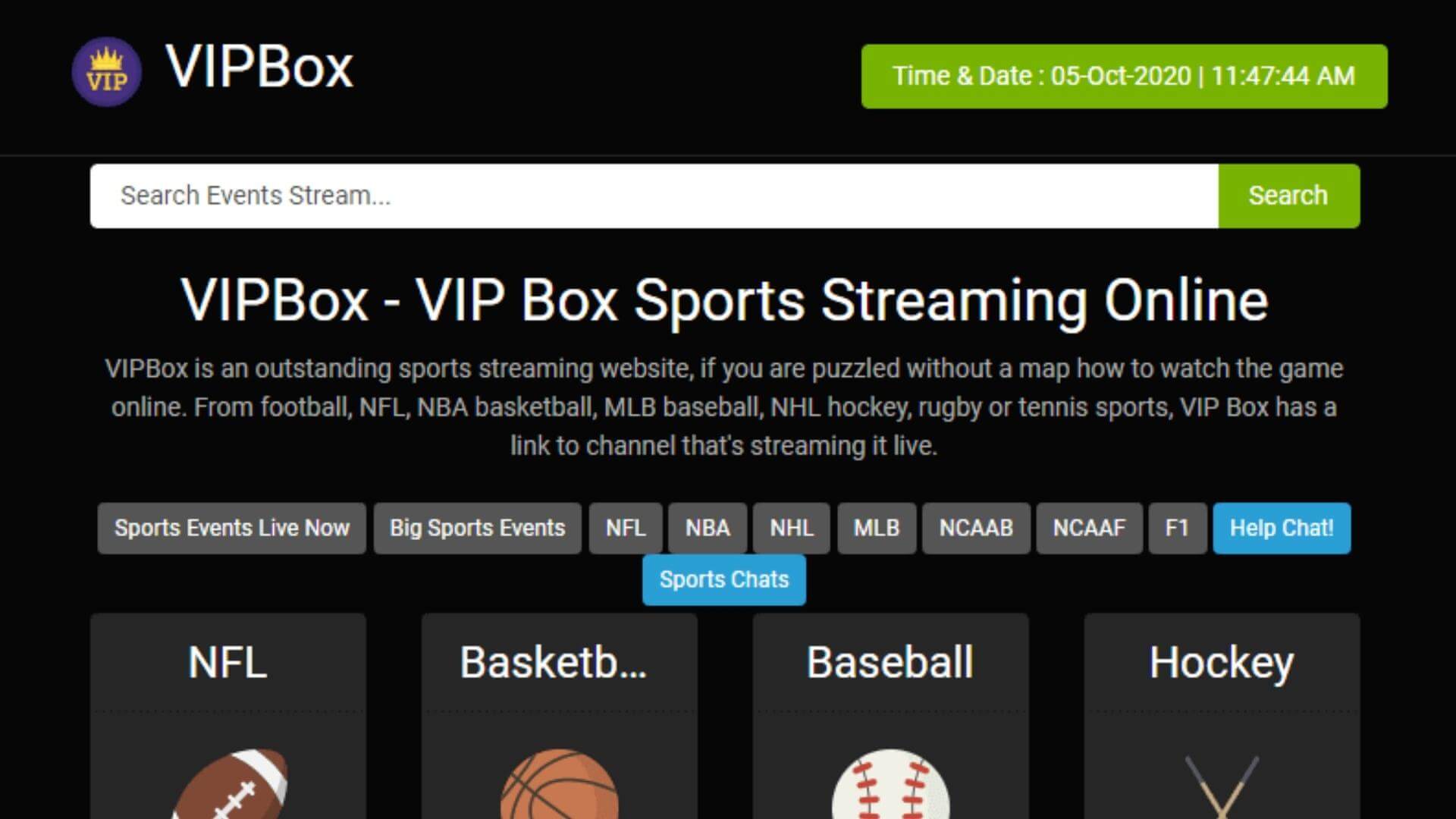Watch VIPbox Streams: Live Sports & More!
Is access to live sports streaming, completely free of charge, too good to be true? The allure of platforms like vipbox lies in the promise of instant access to a global array of sporting events, from the English Premier League to obscure tournaments, all without the burden of subscription fees. This accessibility, however, masks a complex web of legal and ethical considerations that demand closer examination.
The landscape of online entertainment is in constant flux, and the consumption habits of sports fans are adapting accordingly. Traditional broadcasting models, dependent on cable subscriptions and pay-per-view events, are facing unprecedented challenges from the proliferation of streaming services and, increasingly, from sites like vipbox. These platforms, which often operate outside the bounds of established copyright laws, offer an attractive alternative to the cost and inconvenience of conventional viewing methods. However, before diving headfirst into the world of free sports, its crucial to understand the potential risks and implications.
The core concept behind vipbox, and similar websites, is simple: to aggregate and provide links to live streams of sporting events. They do not, in most cases, directly host the content themselves. Instead, they act as portals, guiding users to streams hosted on other servers, often in jurisdictions with less stringent copyright enforcement. This model presents a significant challenge to rights holders, who struggle to control the dissemination of their content and protect their revenue streams. The legal battles fought by organizations like the Premier League against illegal streaming are a testament to the ongoing struggle to protect intellectual property in the digital age.
The accessibility of these platforms has undoubtedly reshaped how sports are consumed. Fans can now watch their favorite teams and athletes from anywhere in the world, at any time, provided they have an internet connection. This global reach has fostered a sense of community, connecting fans across geographical boundaries and creating a shared viewing experience. However, this convenience comes at a cost. Beyond the legal implications, there are serious concerns about the quality of the streams, the potential for malware and viruses, and the ethical implications of supporting content that is illegally distributed.
The motivations behind the users of such platform are varied. For some, it's purely about affordability. The cost of subscribing to multiple sports channels can be prohibitive, especially for those who follow a wide range of sports. Others may be motivated by convenience, preferring the ease of access and the ability to watch events on multiple devices. However, there is a clear distinction between those who are simply seeking an affordable option and those who knowingly engage in activities that infringe on copyright laws.
The legal consequences of accessing and, in some cases, even linking to illegal streaming sites are not always clear-cut. Laws vary depending on the jurisdiction, and the legal landscape is constantly evolving. In some countries, accessing illegal streams is considered a civil offense, while in others, it can result in criminal charges. Furthermore, even if users are not directly prosecuted, they may face other consequences, such as being targeted by copyright holders seeking damages or facing penalties from their internet service providers.
The economic impact of platforms like vipbox on the sports industry is undeniable. Rights holders rely on the revenue generated from broadcasting deals to fund their operations, pay players, and invest in the development of the sport. Illegal streaming undermines this revenue stream, reducing the funds available to invest in the sport and potentially leading to higher prices for legitimate subscriptions. This creates a vicious cycle where legitimate fans are forced to pay more to support a sport that is increasingly being accessed for free through illegitimate means.
The technical challenges of combating illegal streaming are significant. As soon as one stream is shut down, another springs up. The platforms that host these streams are often based in jurisdictions where enforcement is difficult, and they constantly adapt their tactics to evade detection. This cat-and-mouse game requires constant vigilance and investment from rights holders, who must develop sophisticated monitoring tools and legal strategies to combat the problem.
The ethical considerations surrounding vipbox and similar platforms are complex. While the desire for free access to entertainment is understandable, it is important to consider the impact of that access on the rights holders and the athletes who depend on the revenue generated from their work. Supporting illegal streaming undermines the foundations of the sports industry and contributes to a culture where copyright infringement is normalized. It's important for individuals to weigh their personal preferences against the broader social and economic consequences of their actions.
The future of sports streaming is likely to be shaped by a combination of factors, including technological advancements, legal developments, and consumer demand. The development of new streaming technologies, such as blockchain-based platforms, could potentially offer new ways to protect copyright and provide a fairer model for content distribution. The legal landscape is also expected to evolve, with governments and rights holders working together to develop more effective strategies to combat illegal streaming.
The choices facing sports fans are not always easy. While the allure of free access to content is undeniable, it is important to consider the legal, ethical, and economic implications of supporting platforms like vipbox. By understanding the complexities of the issue, consumers can make informed decisions and support the future of the sports they love, ensuring that the sport can continue to thrive for years to come.
The user experience of platforms such as vipbox varies considerably. Stream quality is often inconsistent, ranging from excellent to poor, depending on the source, the user's internet connection, and the number of viewers. Pop-up ads are common, often containing malicious content. The user interface is often rudimentary and cluttered, designed to prioritize ease of finding streams over aesthetic appeal or user-friendliness.
Another aspect of the discussion revolves around the content itself. These platforms provide access to a broad spectrum of sports, not always limited to the most popular events. While many stream major leagues and tournaments, others focus on niche sports or events with less mainstream appeal. This can cater to the needs of fans looking for a wider selection of content, but it may also be used to access streams for which legitimate rights are not as rigorously secured.
As the legal battles continue, and technological countermeasures are implemented, several alternative methods have emerged for viewing sports content legitimately. These include official streaming subscriptions from major networks and dedicated sports streaming platforms. These often provide high-quality streams, robust customer support, and, importantly, contribute to the financial health of the sport. Another option is to consider using official streaming services provided by the sports organizations themselves.
The impact of these platforms extends beyond the realm of sports, touching upon broader issues of digital piracy and the ethical use of the internet. As consumers, we have a responsibility to make informed decisions about the content we consume and the platforms that we choose to support. This includes weighing the benefits of free access against the risks and implications of illegal activity. It also means supporting legitimate content creators and rights holders, ensuring a sustainable future for the entertainment industry.
The debate over vipbox and similar platforms is a multifaceted one. It is not simply a question of right and wrong, but rather a complex interplay of technological, legal, ethical, and economic factors. To fully understand this discussion, individuals must critically evaluate the impact of their actions, consider the consequences of engaging with platforms of this nature, and make informed decisions about how they consume sports content.
The evolution of such platforms necessitates ongoing review. As technology advances, the ways in which content is consumed and shared will undoubtedly continue to evolve. Consumers must stay informed and actively seek out legitimate ways to experience sports content. The future of sports streaming relies on the collective efforts of rights holders, consumers, and the legal framework to address the challenges posed by these streaming platforms.

